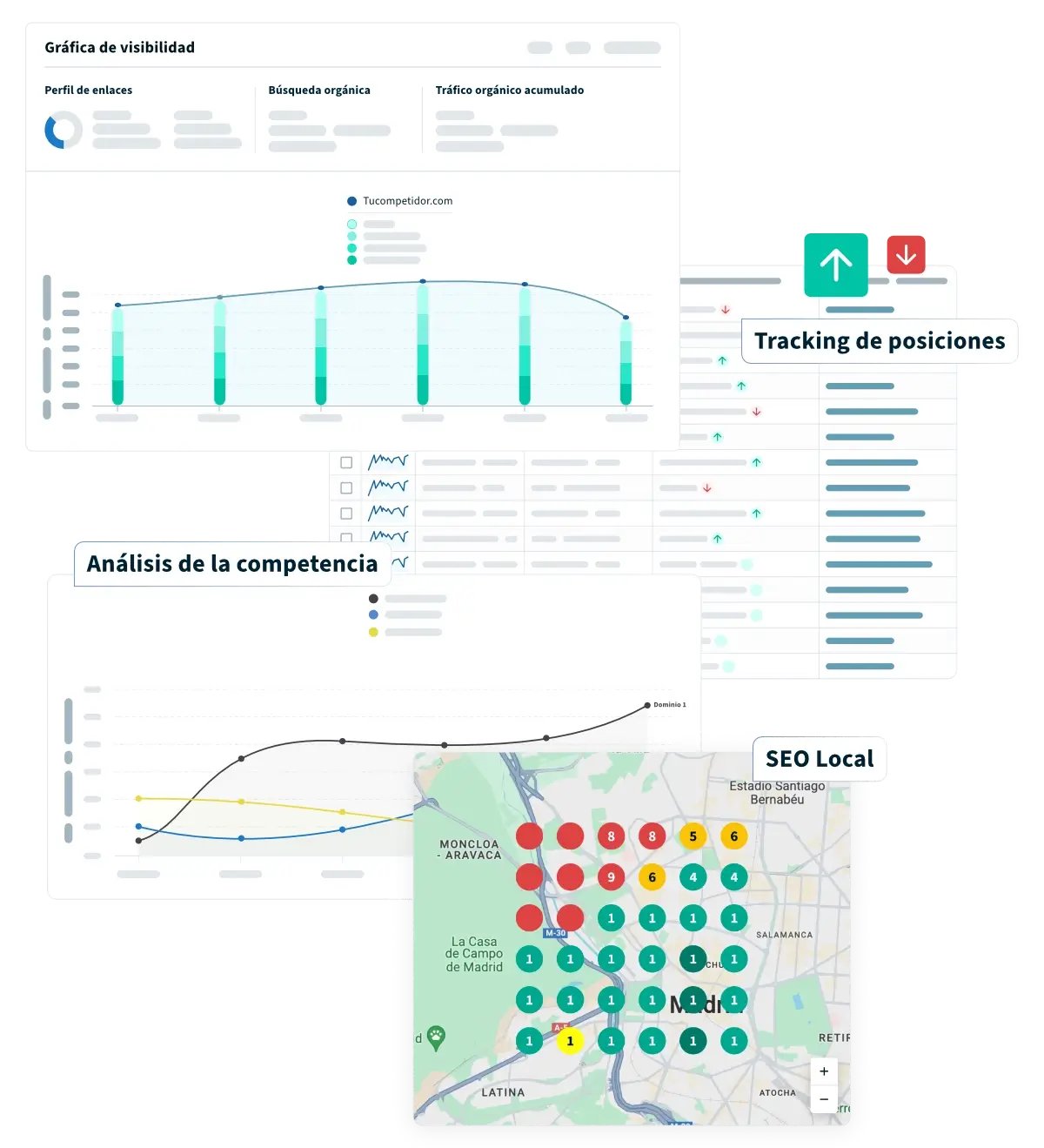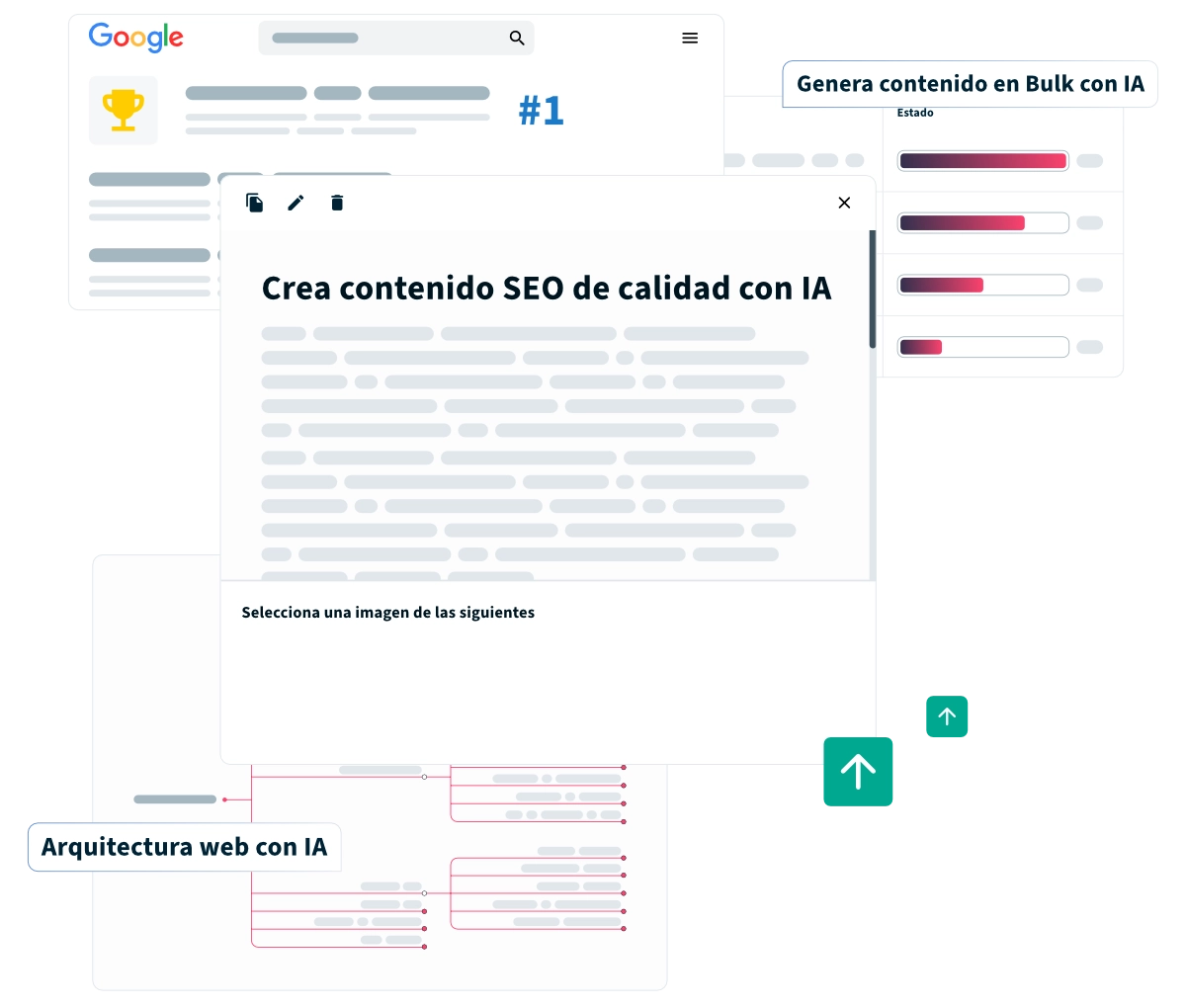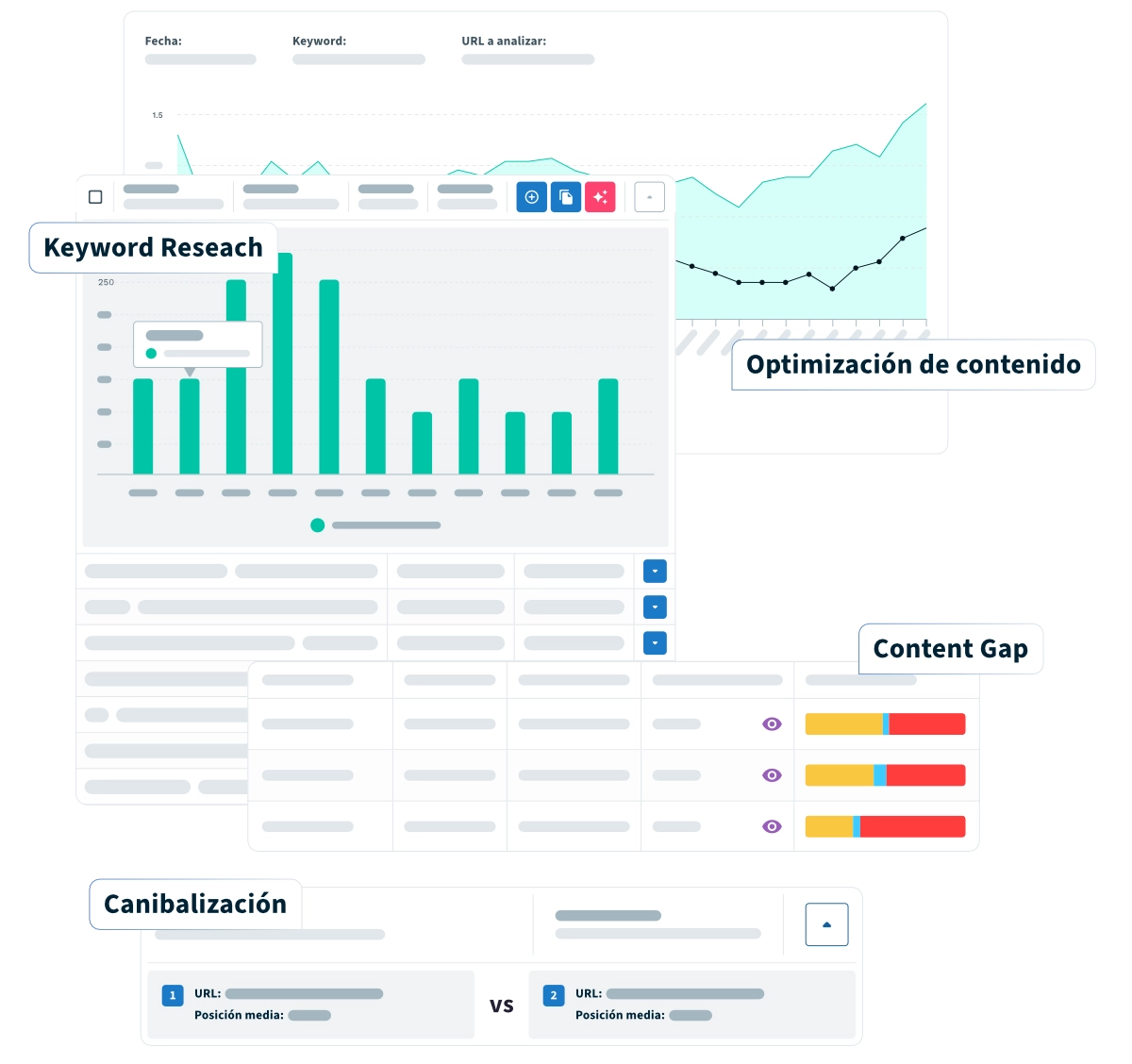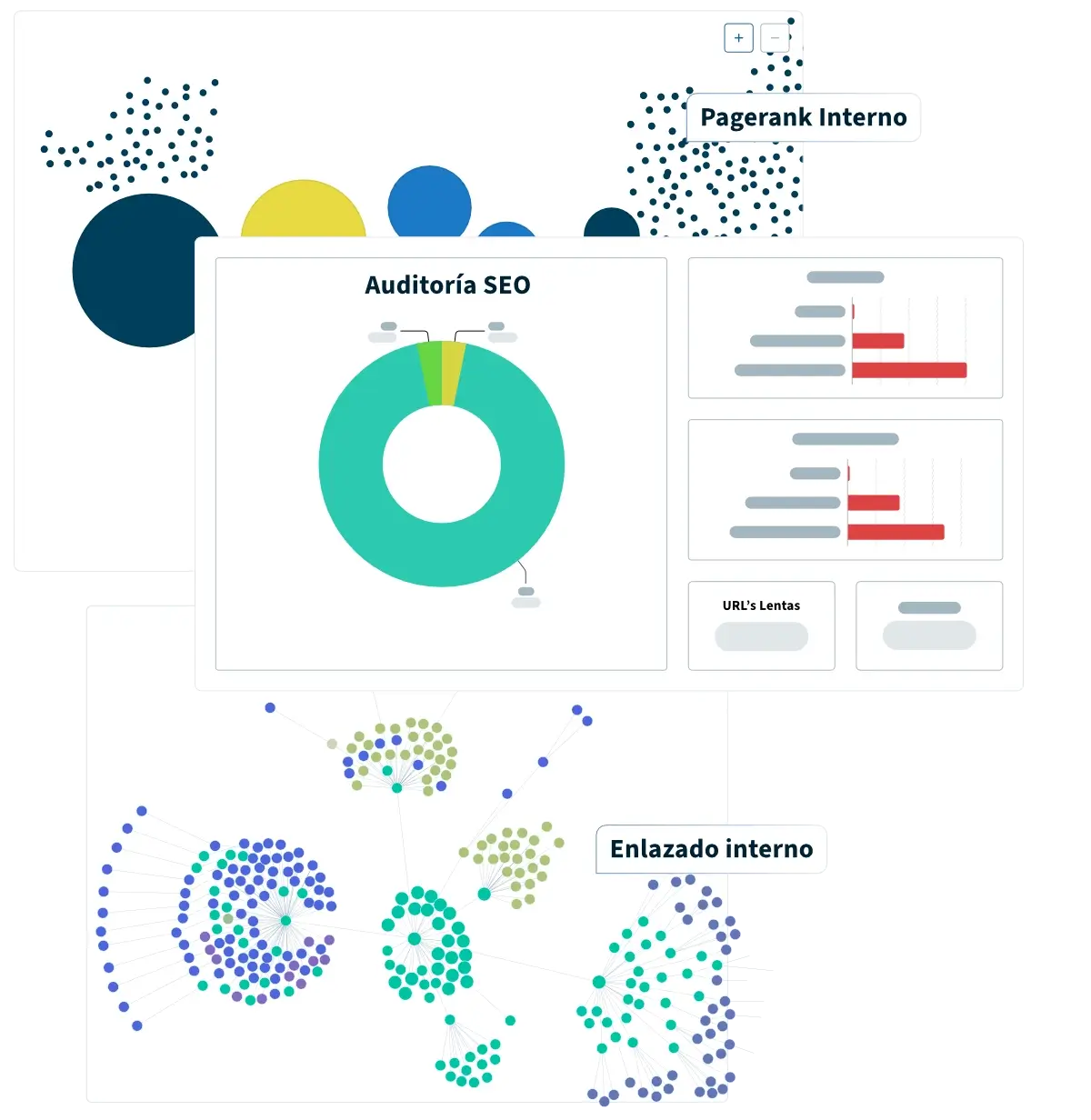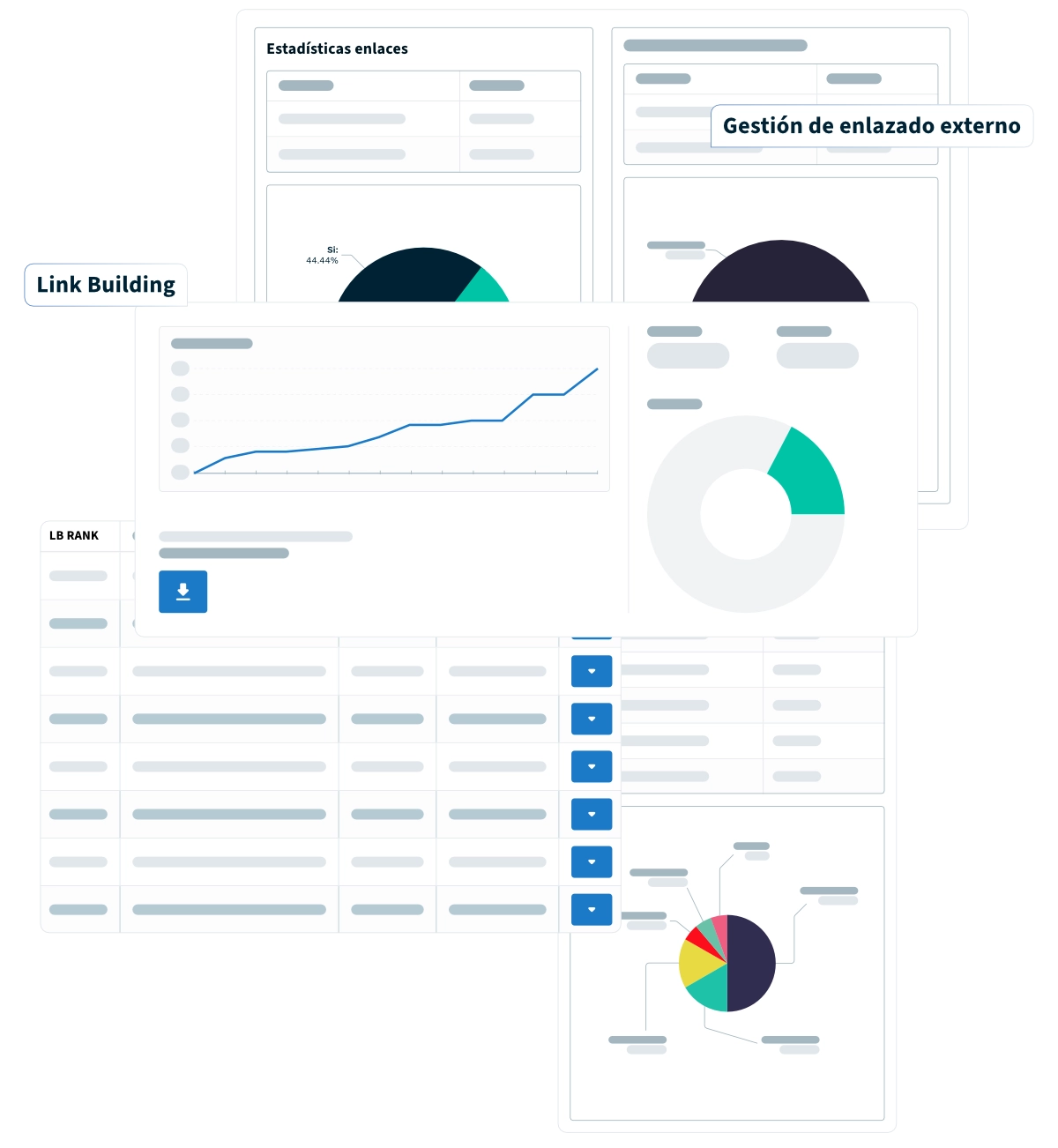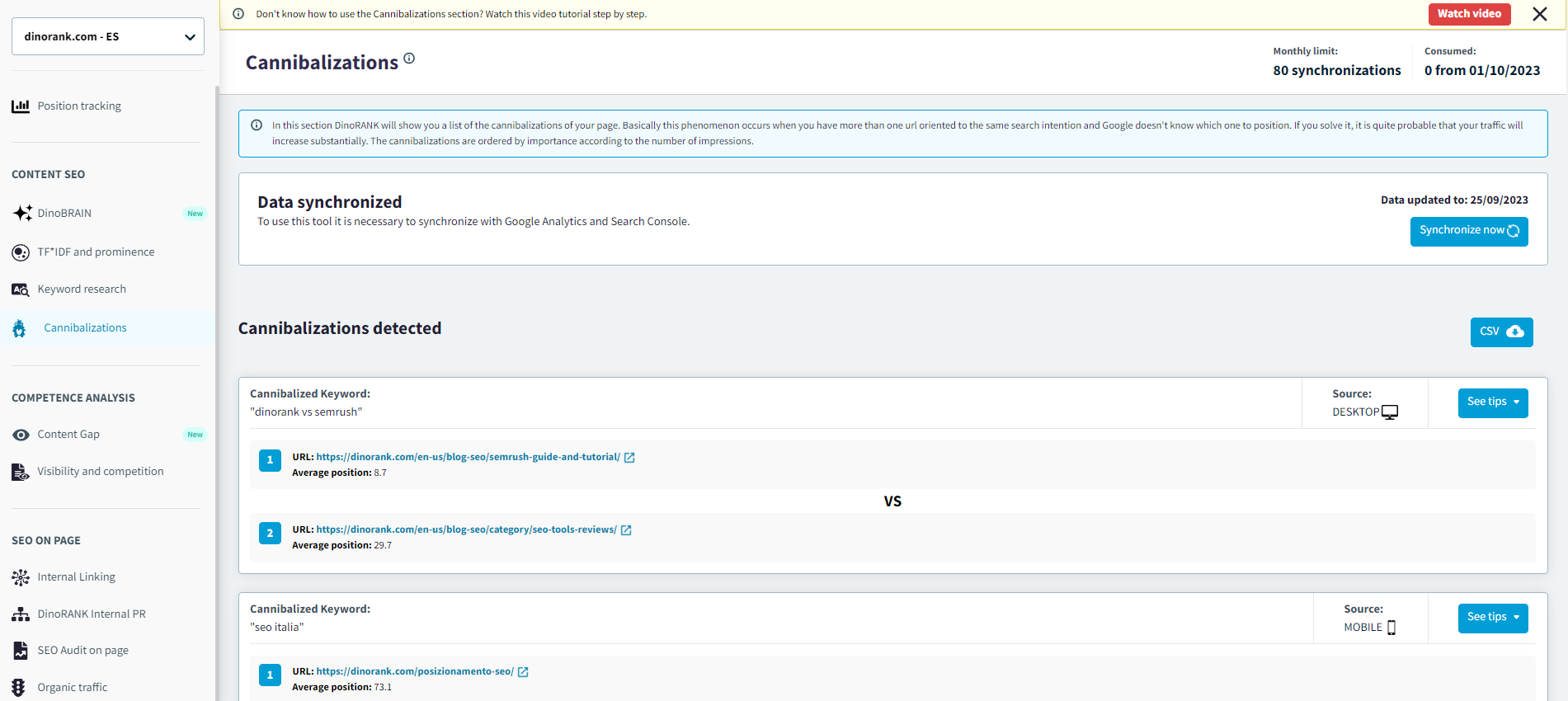
You already know, you can't get a good positioning for your website if you have cannibalizations of your keywords.
A cannibalization occurs when two URLs are ranking for the same keyword the same keyword and compete with each other, so neither of them can progress. can progress. A cannibalization occurs when two URLs are ranking for the same keyword
But what you may not know, or don't give it much importance, is that to avoid cannibalization, you should periodically review and optimize your project periodically.
This is a very common mistake that has negative consequences directly on the positioning (and authority) of your site.
By not solving the cannibalizations that you have in your contents you confuse Google, your website or online store loses authority and, in addition, you also confuse your user, so the number of visits will drop, with all that this means.
The Cannibalizations function detects all the cannibalizations of your website or online store and tells you how to fix them.
Here's what it offers you:

Mark the cannibalized keyword

URLs that rank for that keyword

Shows its average position.

Offers advice on how to solve them
How the Cannibalizations function works.
-
Initial screen.
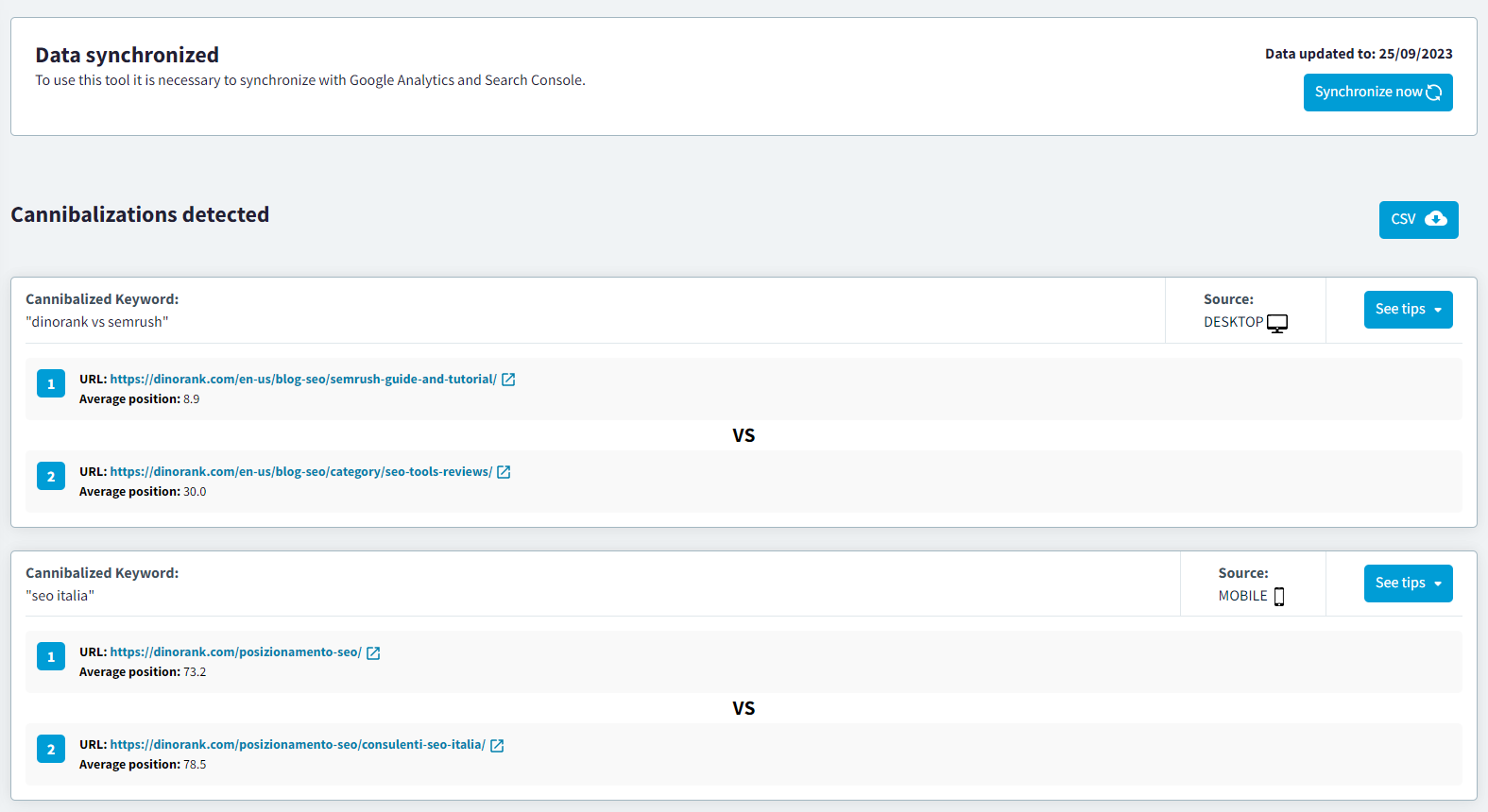
-
First of all you have to synchronize your Google Analytics project and Search Console. It's very easy, just enter the URL and click on the sync button.
-
Cannibalization screen.
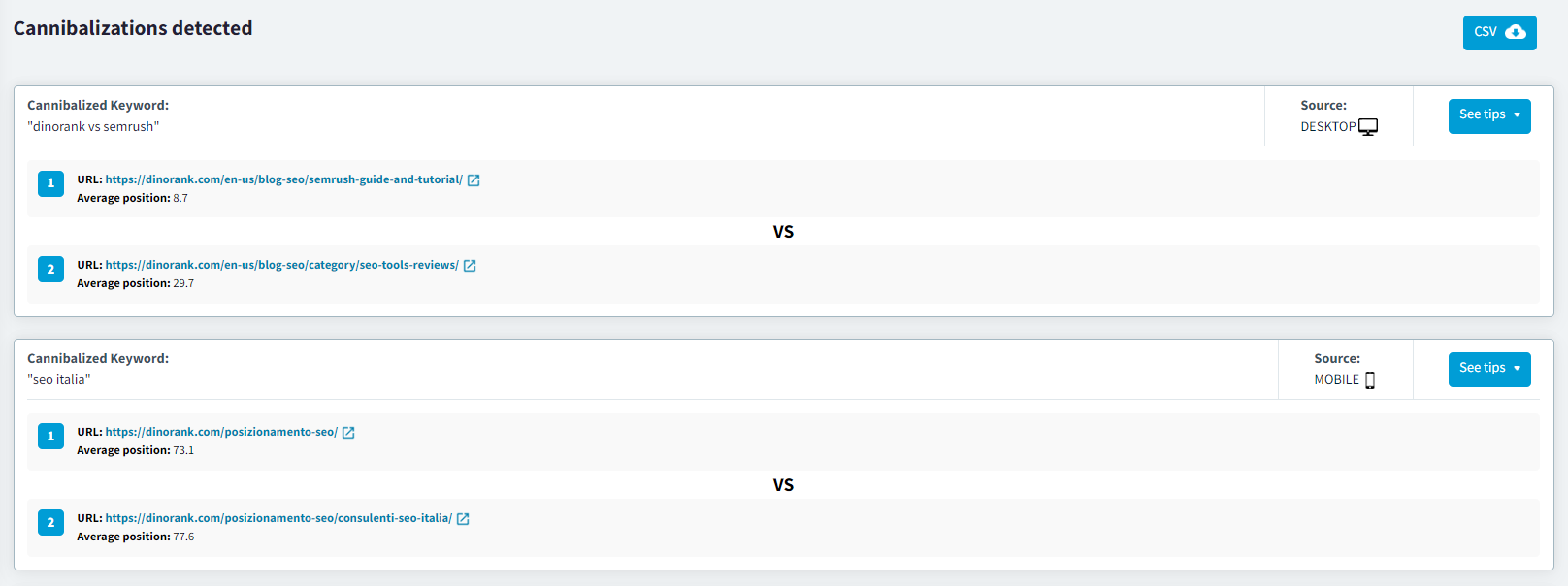
DinoRANK detects the cannibalization of words that you have on your website or e-commerce your website or e-commerce and offers you advice on how to solve them. solutions.
-
Indicates the detected cannibalizations, i.e. all URLs pointing to the same search intent.
-
It points out which keyword is cannibalized.
-
It also tells you the average position so you know which URLs to keep and on which ones to do a 301 redirect.
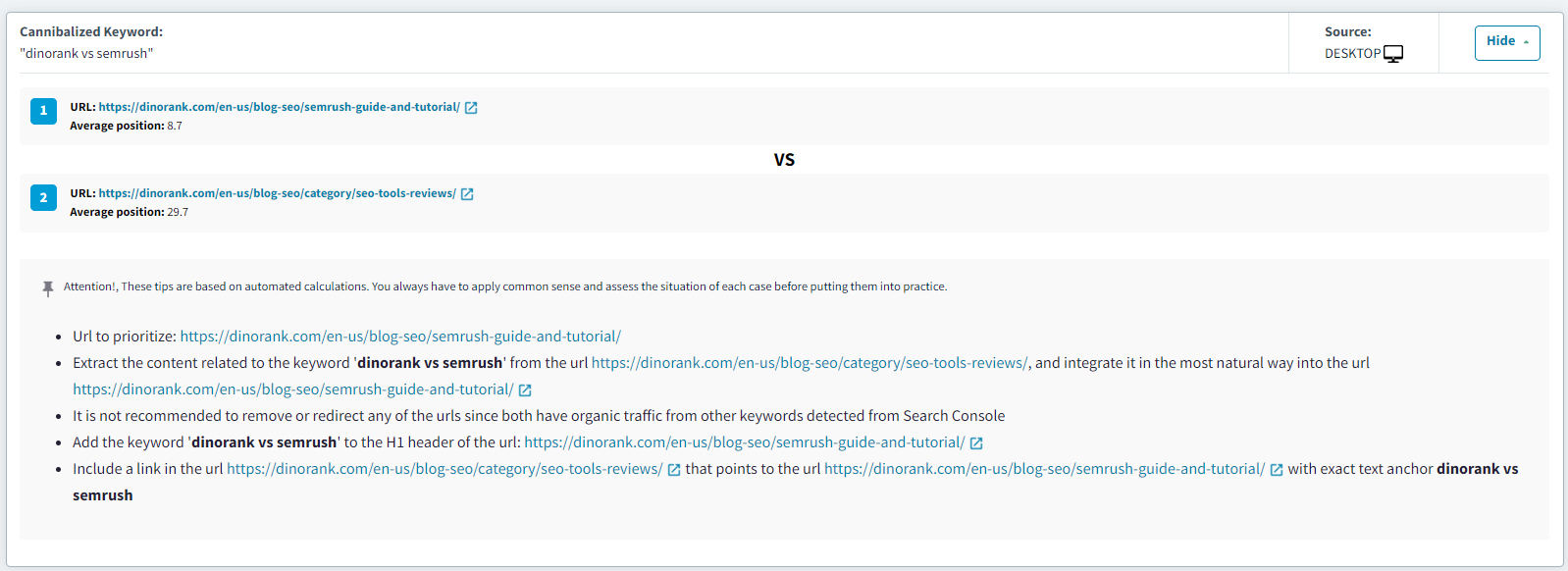
You can deploy the tips it offers you to solve it. Keep in mind that these tips are based on automatic calculations, so it is important to it is important that you evaluate if they are optimal for your project. project.
-
It tells you which URLs to prioritize.
-
It then tells you to extract related content from the URLs you are going to redirect and embed it. redirect and integrate it as "naturally" as possible into the URL you want to keep. maintain.
-
It advises you in which places you should enter the main keyword to improve your positioning.
-
It also tells you to insert a link in the "weak" URL to point to the one you're going to position and the exact anchor text to use.
Don't dilute the strength of your website or online store, boost its authority and improve your positioning

Take into account the search intent
Even if they are different keywords, if they respond to the same query, they will cannibalize each other. Plan your content with strategy.

Don't confuse Google because it will penalize you
If you divide the authority in different pages that compete for the same keyword, Google will not know which one is better for the user.

Think about what the user wants to find
And offer it to them. If someone sees two URLs of the same website in a SERP, they will get confused, hesitate and possibly look for another result.






